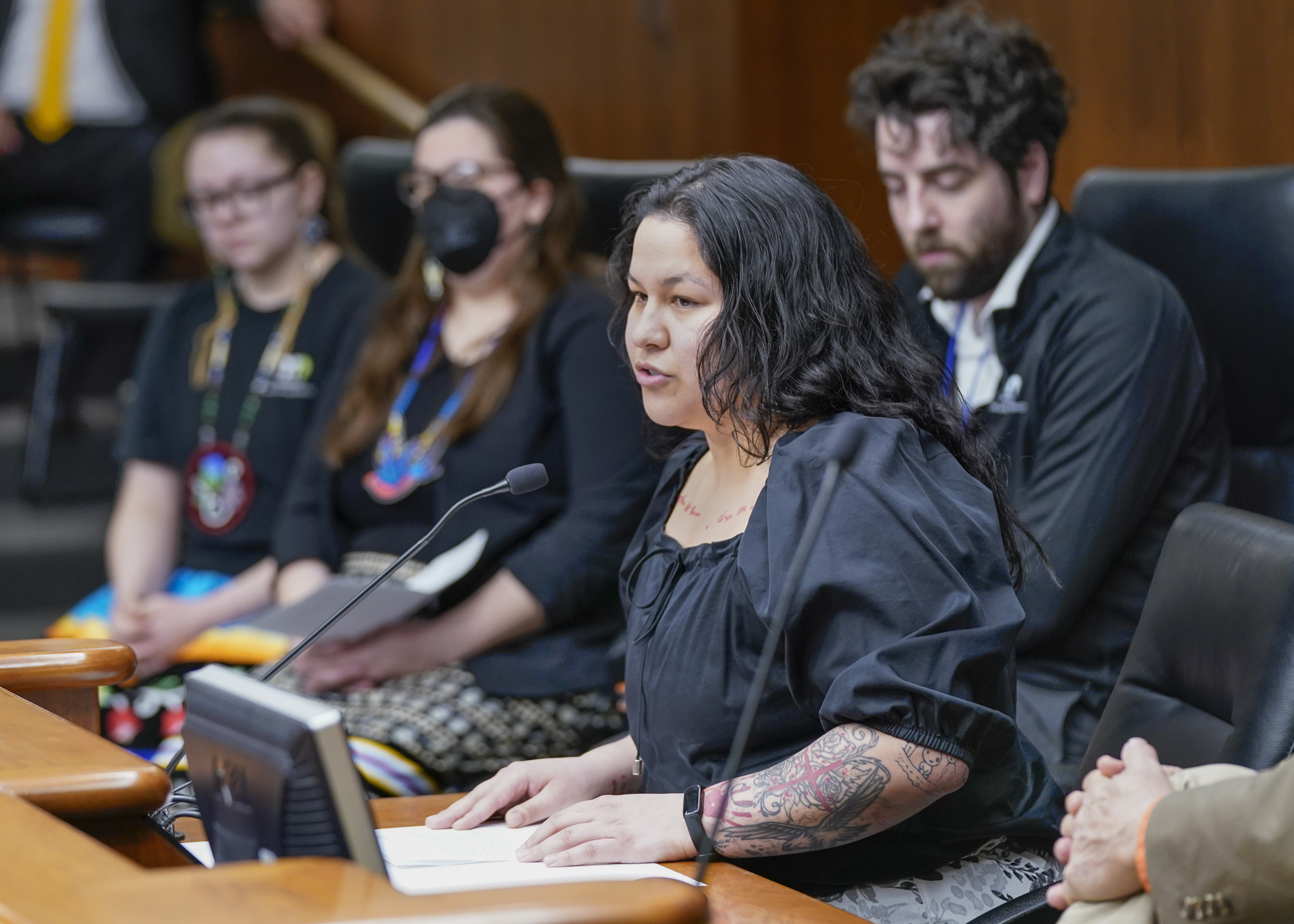Legislation seeks to keep Dakota, Ojibwe languages alive

Five first-language Dakota speakers are alive in Minnesota; all over age 67.
Ariella Leith, whose Dakota name translates to Sacred Sun Woman, teaches language to children from birth to age 5 at “the first and only Dakota immersion school on tribal lands.”
With state funding, revitalization efforts have had some success, as 33% of community members were learning or speaking Dakota in 2022, up 20% from 2019.
“It took a lot of resources and time to take our language away from us historically and now it will take a lot more to bring it back,” she said.
“Little represents the rich cultural heritage of Minnesota more than its indigenous languages,” said Keegan Flaharty, grants and contracts manager for the Minnesota Indian Affairs Council. But due to the scarcity of native speakers, absence of accessible instruction and overall urbanization and assimilation, many indigenous people have lost their language.
To save Dakota and Ojibwe languages, Rep. Dean Urdahl (R-Grove City) sponsors HF901 to appropriate $4.6 million during the 2024-25 biennium from the Arts and Cultural Heritage Fund to the council for language preservation and other duties. The council has received annual funding since 2010.
The House Legacy Finance Committee laid the bill over Wednesday for possible omnibus bill inclusion.
Of the appropriation:
- $1.7 million would go to preserve the Dakota and Ojibwe languages and to foster related educational programs and services;
- $1.3 million would be given to Dakota and Ojibwe language immersion educational institutions;
- $1.2 million would support preservation projects and educational immersion efforts;
- $300,000 would be used to fulfill existing statute-mandated responsibilities and comply with the Native American Graves Protection and Repatriation Act; and
- $100,000 would go to a Dakota and Ojibwe Indian language working group.
Skyler Kuczaboski, grants administrative specialist for the council, can speak Ojibwe after learning through the St. Paul public schools and now in college, but her grandmother no longer can.
“The lack of fluency in our communities is a painful reminder of the historical trauma we have, and when we learn our language, we heal our pain that remains from the past.”
Related Articles
Search Session Daily
Advanced Search OptionsPriority Dailies
Speaker Emerita Melissa Hortman, husband killed in attack
By HPIS Staff House Speaker Emerita Melissa Hortman (DFL-Brooklyn Park) and her husband, Mark, were fatally shot in their home early Saturday morning.
Gov. Tim Walz announced the news dur...
House Speaker Emerita Melissa Hortman (DFL-Brooklyn Park) and her husband, Mark, were fatally shot in their home early Saturday morning.
Gov. Tim Walz announced the news dur...
Lawmakers deliver budget bills to governor's desk in one-day special session
By Mike Cook About that talk of needing all 21 hours left in a legislative day to complete a special session?
House members were more than up to the challenge Monday. Beginning at 10 a.m...
About that talk of needing all 21 hours left in a legislative day to complete a special session?
House members were more than up to the challenge Monday. Beginning at 10 a.m...